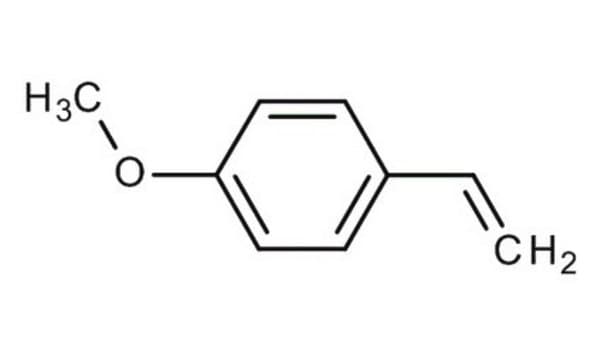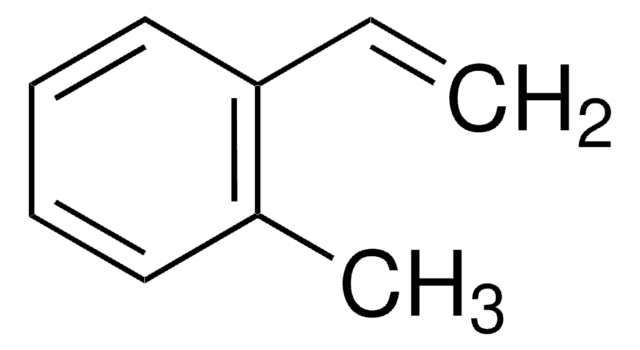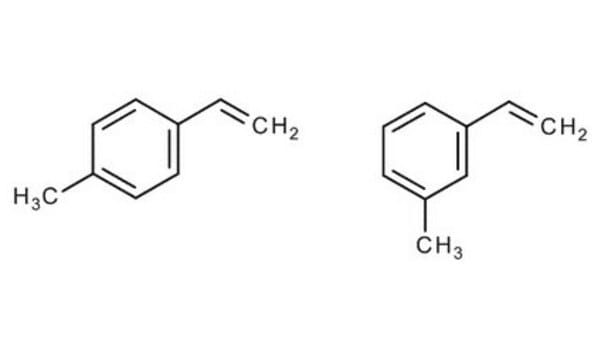M80806
4-Methylstyrene
96%, contains 3,5-di-tert-butylcatechol as inhibitor
Synonyme(s) :
4-Vinyltoluene
About This Item
Produits recommandés
Pression de vapeur
<1 mmHg ( 20 °C)
Niveau de qualité
Pureté
96%
Forme
liquid
Température d'inflammation spontanée
959 °F
Contient
3,5-di-tert-butylcatechol as inhibitor
Limite d'explosivité
5.3 %
Indice de réfraction
n20/D 1.542 (lit.)
Point d'ébullition
170-175 °C (lit.)
Densité
0.897 g/mL at 25 °C (lit.)
Température de stockage
2-8°C
Chaîne SMILES
Cc1ccc(C=C)cc1
InChI
1S/C9H10/c1-3-9-6-4-8(2)5-7-9/h3-7H,1H2,2H3
Clé InChI
JLBJTVDPSNHSKJ-UHFFFAOYSA-N
Vous recherchez des produits similaires ? Visite Guide de comparaison des produits
Description générale
Application
Mention d'avertissement
Danger
Mentions de danger
Conseils de prudence
Classification des risques
Aquatic Chronic 2 - Asp. Tox. 1 - Flam. Liq. 3
Code de la classe de stockage
3 - Flammable liquids
Classe de danger pour l'eau (WGK)
WGK 3
Point d'éclair (°F)
113.0 °F
Point d'éclair (°C)
45 °C
Équipement de protection individuelle
Eyeshields, Faceshields, Gloves, type ABEK (EN14387) respirator filter
Faites votre choix parmi les versions les plus récentes :
Déjà en possession de ce produit ?
Retrouvez la documentation relative aux produits que vous avez récemment achetés dans la Bibliothèque de documents.
Les clients ont également consulté
Notre équipe de scientifiques dispose d'une expérience dans tous les secteurs de la recherche, notamment en sciences de la vie, science des matériaux, synthèse chimique, chromatographie, analyse et dans de nombreux autres domaines..
Contacter notre Service technique















